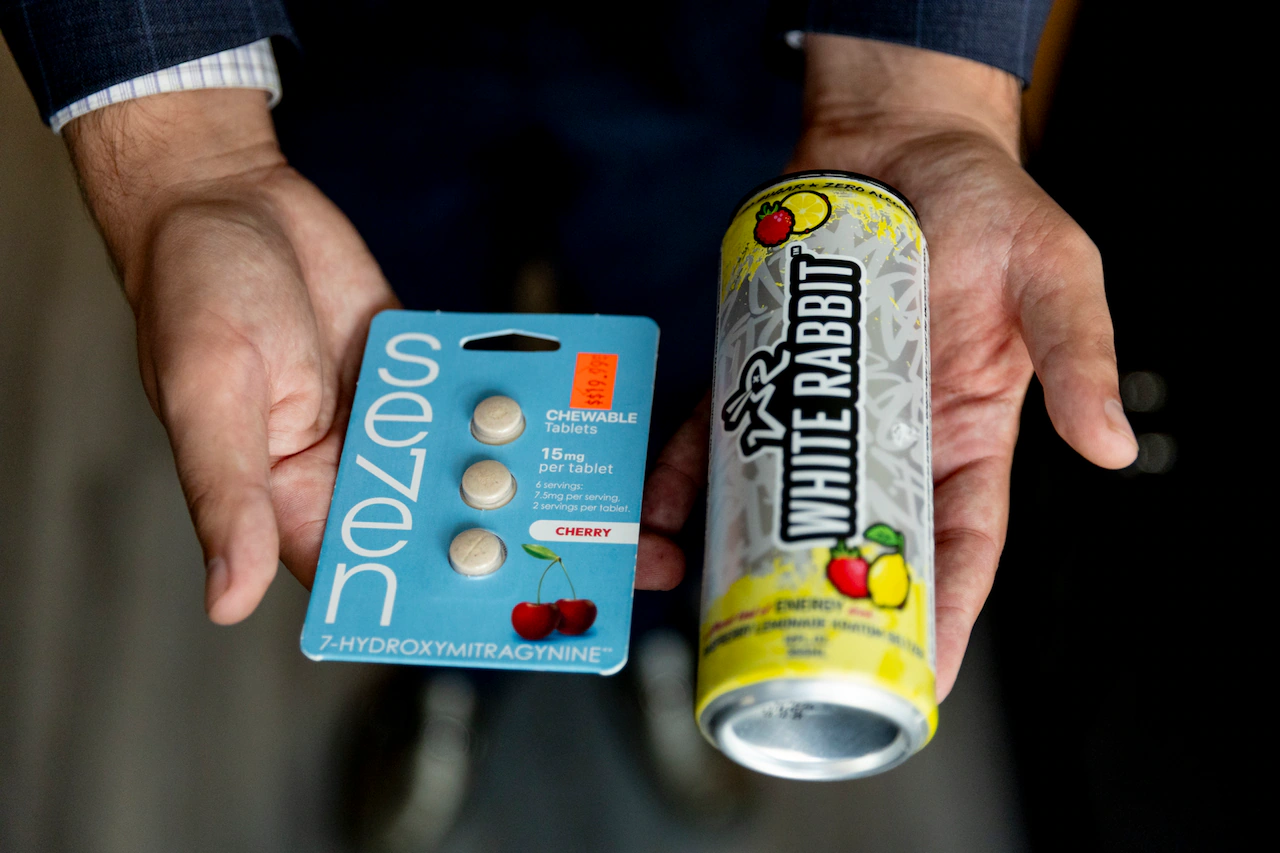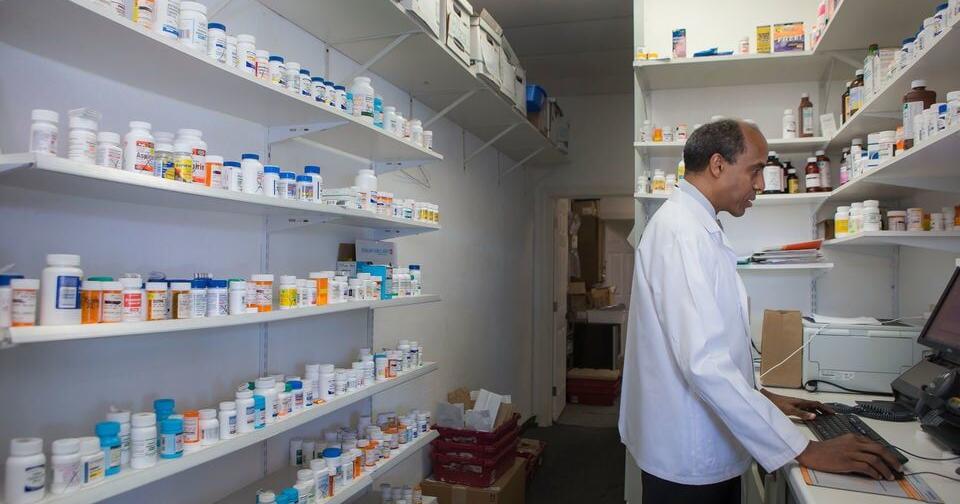
GENESEE COUNTY, MI — Flint health and drug rehabilitation officials say they are treating a growing number of patients using what they call a “gas station opioid” — a highly concentrated byproduct of kratom that’s being sold at convenience stores and smoke shops throughout Genesee County.
While 7-Hydroxymitragynine occurs naturally in trace amounts of kratom — pills, energy drinks and candy being sold as 7-OH are super-concentrated and can be more potent than opioids like morphine.
“People think it’s benign, something that gives them a little pick-me-up … a low-grade stimulant like caffeine,” said Dr. Dominic Borgialli, an emergency room physician at Hurley Medical Center.
“People become tolerant of it, and they need it. They can’t stop using it,” Borgialli said. “If they stop using it, they (start having) withdrawal, and the withdrawal is essentially similar to (quitting) heroin or any other opioid.”
In late July, the U.S. Food and Drug Administration recommended the Drug Enforcement Administration classify 7-OH as a schedule I controlled substance and in Florida last month, the state’s attorney general enacted an emergency rule, putting 7-OH on that state’s schedule I list of drugs that have a high potential for abuse and no accepted medical use.
“7-OH functions like an opioid, it’s addictive like an opioid, and without any real regulation, it’s the new bestseller at local vape shops,” said New Paths Behavioral and Recovery Center Executive Director James Hudgens. “It endangers our clients in recovery and anyone who might not know what they’re buying.”
Hudgens last month asked Michigan Attorney General Dana Nessel to initiate emergency classification of 7-OH as a schedule I controlled substance under Michigan law, effectively taking it off store shelves.
“While there is limited data available, it is believed that 7-OH poses reduced risks of fatal overdose compared to drugs like fentanyl,” Hudgens wrote in an Aug. 29 letter to Nessel. “However, those who become dependent on 7-OH face unpleasant withdrawal symptoms.”
Borgialli said users come to the emergency room suffering from paranoia, detachment from reality, as well as confusion.
Some come looking for help because they are experiencing withdrawal symptoms and can’t afford to maintain the doses they need because their tolerance continues to increase.
“People can hallucinate (or) become very agitated to a point where it’s hard to tell if it’s a mental health crisis or a drug reaction,” he said. “It’s a drug that’s potentially dangerous. It has some major side effects, (but) there is treatment for it.”
During an overdose, naloxone can be used as a reversal agent, the doctor said.
Danny Whimmer, press secretary for Nessel, said the attorney general is aware of concerns about 7-OH and other synthetic opioid products.
But unlike Florida officials, she doesn’t have emergency rulemaking powers that would allow her to schedule a substance, Wimmer said in an email to MLive-The Flint Journal.
“I am presently unaware of any provision under Michigan law that empowers the attorney general to issue an emergency rule scheduling a substance …,” his statement reads.
Wimmer said the state Department of Licensing and Regulatory Affairs/Board of Pharmacy is generally involved in the classification of drugs in Michigan.
Hudgens said the lack of regulation around kratom and 7-OH leaves buyers in the dark about how concentrated the product they are taking is.
Estimates are that 7-OH can be 30 times as potent as the kratom that’s commonly sold in small bottles at convenience and other stores, Borgialli said.
According to the DEA, kratom leaves contain two major psychoactive ingredients –mitragynine and 7-hydroxymytragynine.
The kratom leaves come from a tree native to Southeast Asia and are crushed and then smoked, brewed with tea, placed into gel capsules, or made into liquid.
A kratom energy drink Hudgens purchased included .01 milligrams of mitragynine, while a pill form of 7-OH purchased in Genesee County was listed as having 15 milligrams of the same active ingredient.
“The problem you have is there’s no legal dose,” Hudgens said. “It really is the wild, wild West with this. There’s no laws out there.”
7-OH products are gaining popularity, Hudgens said, even as the state has made progress in combating the opioid epidemic.
The New Paths director said overdose deaths in the state declined by nearly 9% from 2021 to 2023 and provisional data projects a 34% decline between 2023 and 2024.
“The state cannot afford to see this trend reversed again,” his letter to Nessel reads.
(Information from the Associated Press is included in this report.)



